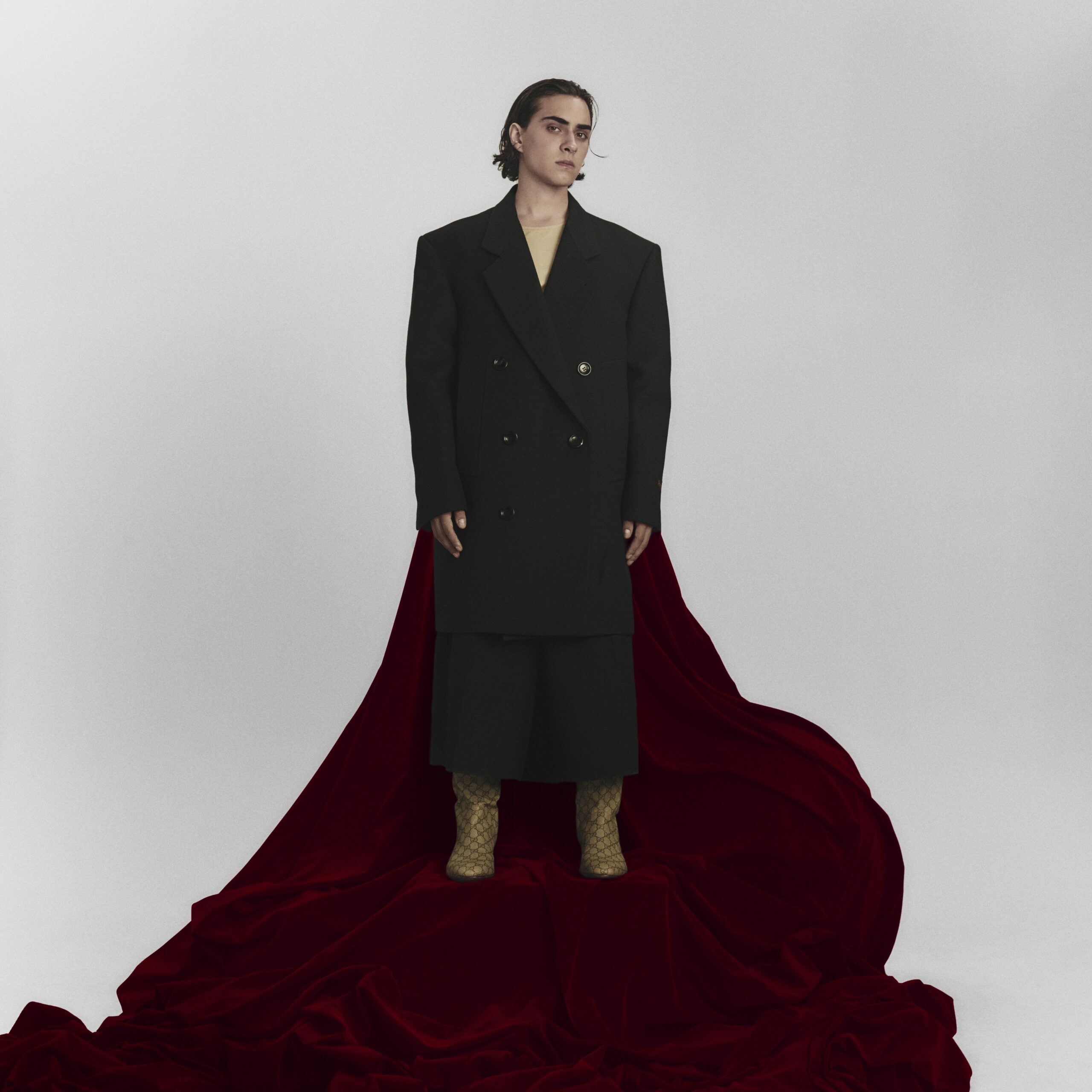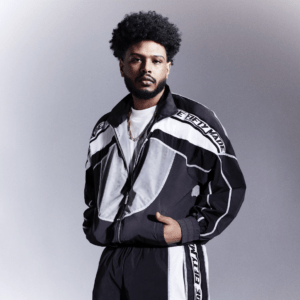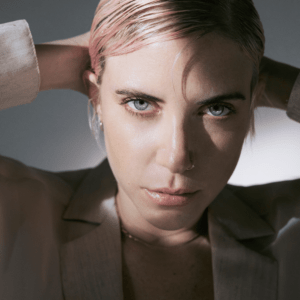Half Lebanese, half Ukrainian, one-time resident of Kuwait, Lebanon, Norway, and now LA, Marwan Daou (Instagram), aka Maro, has, both literally and figuratively, been around the world.
“May you live in interesting times” is an expression that can cut both ways. It’s certainly true for Lebanese-Ukrainian singer-songwriter Maro. Both his homes have gone through challenging times in recent years, and so has he. From posting YouTube videos of his music from his bedroom to signing with EMPIRE and moving to LA, it’s been a wild ride.

Music began early for Maro, at the age of ten his mother signed him to a conservatoire in Saida, Lebanon and he began to learn the piano. “She and my grandmother pushed for me to take it seriously, which I did. This led me to wanting to explore the guitar, and I got my first one from my grandmother on my 14th birthday, when I was in Ukraine. I taught myself how to play it by watching countless YouTube videos and tutorials,” he says. A year later and he’d be playing and singing on the streets of Beirut every weekend.
The young Maro was inspired by Justin Bieber, the YouTube parallel being obvious, but his influences are widespread, from Freddie Mercury to Nirvana – whose discovery took place at the same time he got his guitar – he never stops listening. These days “Eminem, XXXTentacion, Lil Peep, Russ, Mac Miller are always on repeat,” he says.
Maro’s sound is raw, stripped down, a lead instrument carrying his voice. His Arabic influences are clear, his voice and vocals are inspired by the music of his family, the use of his vibrato an allusion to his heritage. “I feel like the mix of all of these things, in addition to emotionally-packed lyrics and delivery, shape the sound that I’m putting out right now,” he says.

This mixed heritage is part of Maro’s strength, “I grew up living in Lebanon and spending most of my summers in Ukraine with my grandparents, so I’ve always embraced both of my cultures. I love the fact that I come from two different worlds, it has given me the ability to be understanding and appreciative of other cultures. When traveling, it’s easier for me to connect with other people, hearing their stories and experiences, and learning something different. I’m a good listener,” he says.
But let’s back up. He was young, he was talented, but he had zero connections. Luckily, he had an iPhone and the Internet. He knew the power of viral music, he felt he had talent, so he started. “I posted my first singing video in 2015, my skills weren’t great so it took me a lot of practice, hard work, and consistency to get to a place I was okay with. Fast forward four years later, my girlfriend at the time had just broken up with me, and I was stuck in a university dorm, majoring in a topic that I did not enjoy at all. In addition to that, all of my friends lived away from me in a different city and my parents were in a different country. My insomnia started getting worse, and all I could do was cry at night – which started to affect my performance at university. I felt like I had nothing to hold on to. I was young and broke with a following of 2,000 people, which kept my vision alive, but I was feeling hopeless regardless,” he says.

In 2018, his life changed. He uploaded an incredible, emotional cover of Lil Peep and XXXTentacion’s Falling Down and it blew up. “This cover changed my life. I had already heard a leak of the song before it was released, so I learned the lyrics and was the first to post a cover of it once it was officially out. I filmed it in that same small dorm room. Witnessing that video reach 100,000 views in just a few weeks, and seeing all the love and positive feedback regarding my voice and ability gave me the push to keep posting more videos regularly,” he says. It currently sits on 1.3 million views.
In 2020, Maro moved to Oslo, Norway, “I had connected with Eirik, my manager at the time, over Instagram, we became best friends and his family very kindly welcomed me into their home for some time before I got my own place,” he says. Eight months ago, he moved to LA to further his career, “It sort of reminds me of Lebanon when it comes to the weather and the vibe, which is comforting. It’s a huge city and there’s still a lot for me to explore so I’m excited for what’s to come…” he says.
However, Norway’s capital left an indelible mark on Maro: A love of fashion. “When I first moved to Oslo, I was lucky to be surrounded by creative and extremely fashionable people and friends. They would take me out thrift shopping to find cool vintage pieces and help me explore different styles. With time, I started to understand the fashion world more and what looks best on me, which led to me developing my personal taste. I like experimenting with fashion a lot and I’m always open to trying new things,” he says, “Fashion will always be an extension to my art and the way I express myself – and like my music, my sense of style will forever keep evolving, reflecting my growth.”

Now, after reaching out to Ghazi Shami, CEO and founder of San Francisco-based label EMPIRE (Instagram), Maro is looking to the future. At the time he signed XXXTentacion was also with EMPIRE. Maro went on to release his debut album, ‘Words from My Bedroom’.
His music is full of emotion and is clearly fuelled by personal experiences, relationships, his state of mind. Maro is clearly trying to find his way and his listeners are along for the ride. A little dark, a little nostalgic, Maro’s sound belies his age, and he’s under no illusions about the nature of many of his songs, “Listening to a good song that you can relate to is like having a friend who gives you their shoulder to cry on, it helps a lot, it has helped me,” he says.

“I wrote the songs on “Words From My Bedroom” over the course of three years. I wrote all of them in the bedroom I stayed in across multiple cities. Some were written in Kuwait at my family home and others while I was in Lebanon and Norway. The concept of the album’s name is to emphasize that I was writing these songs in my room, expressing how I felt at that very moment,” he says. The song “HELLSTORM” was inspired by the war in Ukraine and came at time when Maro was thinking of his grandmother and the Beirut Port Blast. The vibe is one of raw love, the type that can make you endure anything for those you hold dear.
The perfect example of this depth is his new track, ‘The House’. The song is a tale of his grandmother, Souad, his second mother, who helped raise him while his parents were at work. Memories of food, love, laughter, family stories, holidays and much, much more, all these are rooted around four walls, walls which themselves become memories, part of who we are. Souad passed away during the pandemic and Maro was unable to say goodbye. The house was sold, what was once a part of the family, now gone. Memories remain, but tinged with pain.

Throughout this conversation there’s something floating in the air, it keeps coming up, but obliquely – the issue of mental health, or the impact of trauma. It’s a topic that’s often taboo in our part of the world, especially for men, but Maro doesn’t shy away from it, far from it. Listen to his music and it’s plain to see, or hear. “I believe a lot of us [men] struggle mentally and emotionally, especially in the MENA region. Solely on the example of war and violence, we witness things that we have absolutely no control over, and all of this gets buried in our subconscious. We accept those things as part of our everyday life. The same thing happens with some of the negative repressed feelings that we experience throughout our lifetime, we’ve seen our fathers do it and the children become a reflection of that. But in our society, talking about mental health is a sign of weakness and you’re told that you shouldn’t do that because you’re a man,” he says, going on to say that it’s an incredibly complex issue. Thankfully, the young people, men specifically, are starting to talk about their mental health, according to Maro, either to friends or a therapist.

The key to it all is to pause, to reflect and to think about who you are, why you think what you do and what you can do about it. When it comes to getting help, or taking action, it’s down to the individual, according to Maro. Be it a friend, or a therapist, the key is to speak to someone. Whatever you do, it’s up to you, but the path to healing, to improving your situation is to seek help in the first place. It is a stigma, there’s no doubt about it, but it is changing and there’s no shame in admitting you need help and then seeking it.
There’s a complexity to Maro’s music, and his take on life. The past years have been hard, there’s no doubt, but it’s clear that a sense of hope runs through it all. Deep, complex, Maro is making music for our times. And what interesting times they are, though sometimes we might wish they weren’t.













